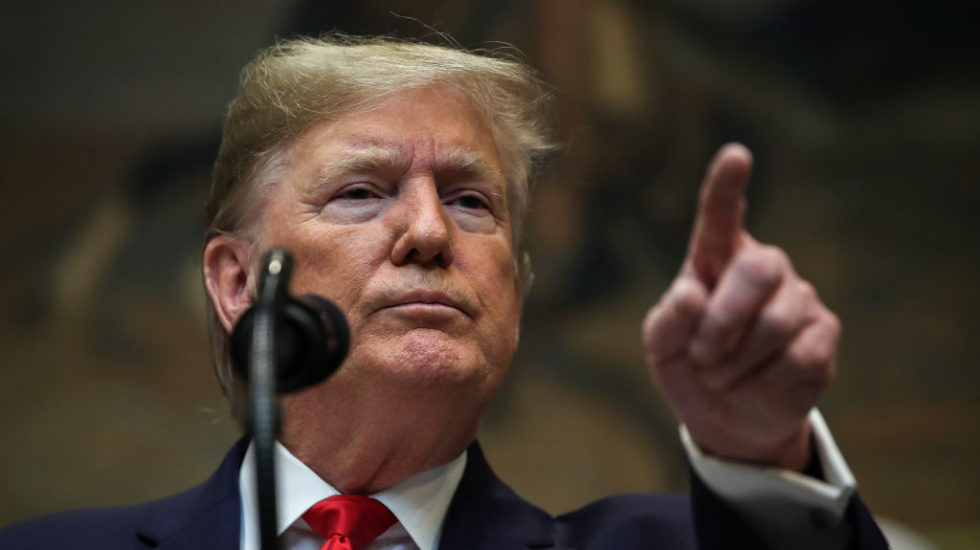Treating America’s cross-Atlantic allies like he did China, President Trump threatened again on Tuesday to impose heavy U.S. tariffs on European cars unless he gets his way on trade negotiations.
“The threatened tariffs symbolize the growing rift between the United States and Europe, which was on clear display as leaders from the two continents appeared to be talking from different scripts,” reports the Washington Post from the World Economic Forum in Davos, Switzerland.
“Trump insisted on discussing a new trade deal, while European leaders kept emphasizing action on climate change and cooperation.”
In an echo of the sort of arm-twisting he used on Ukraine’s president — which is at the heart of the impeachment trial now taking place in the U.S. Senate — Trump demanded a quid pro quo, this time involving Iran.
He said that if Germany, France and Britain want to avoid a 25% tariff on cars exported to the U.S., they must formally announce the Iran broke the 2015 nuclear deal from which the U.S. withdrew, on Trump’s orders, in 2018.
Ironically, the three nations have in essence already done that, by triggering a “dispute mechanism” included in the nuclear agreement, following Tehran’s announcement early this month that it would no longer abide by any restrictions on its nuclear program.
Iran’s action came in response to the Trump-ordered U.S. drone attack that killed its top general, and accused terrorist mastermind, Qasem Soleimani.
“After 70 years of being largely hand-in-hand in promoting democracy and capitalism around the world, the United States and Europe are now at odds over trade, climate change, taxation, privacy, Iran, and defense funding,” the Post says.
The newspaper also noted that U.S. Treasury Secretary Steven Mnuchin also warned Italy and Britain that they could face U.S. tariffs if they pursue taxes on large digital companies like Facebook and Alphabet’s Google. French President Emmanuel Macron agreed in recent days to delay a similar tax in order to avoid Trump’s tariffs.”
“If anybody is going to tax these companies, it’s going to be U.S.,” Trump said.
Financial leaders representing European countries at Davos had expressed hope that Trump was there to announce he was easing trade tensions. They were disappointed.



